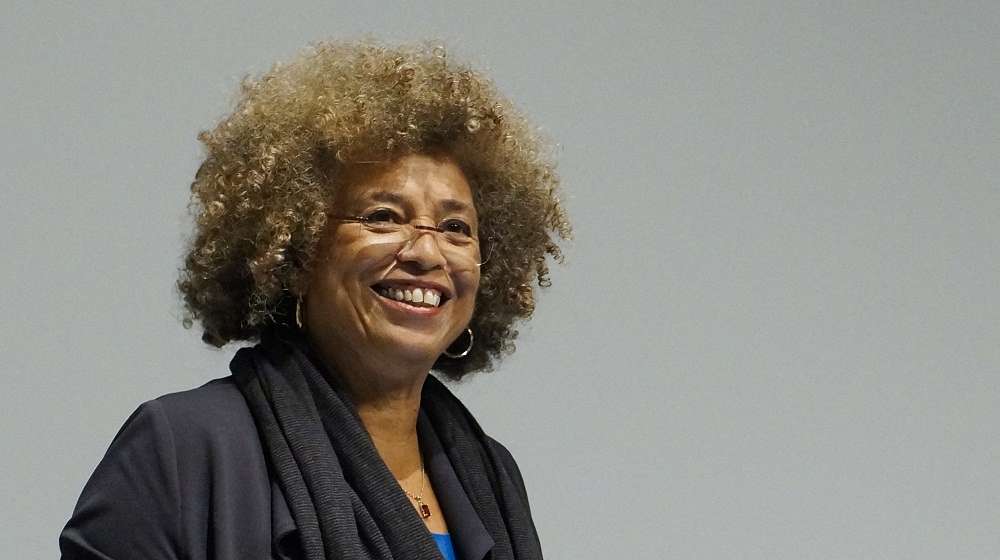Viewpoint: Antagonistic Reaction to Angela Davis Speech Shows Why It Was Necessary
Activist Angela Davis gave a commencement speech at Bryn Mawr College on May 19. A Black woman who was in the audience wrote a critical letter of the speech in her local newspaper. A right-wing college news site used that letter to argue that racism is no longer an issue.
Patricia Jackson penned a letter to the Delaware County Daily Times titled “What Angela Davis did not say at Bryn Mawr” on June 16. Jackson, an African-American social worker, wrote that Davis’s speech did not address the privilege of students in the audience or real problems in American society.
“She did not tell these Millennials that the greatest threat to women is not a white male patriarchal society, but the explosion of single motherhood in our cities, where men abandon the children they father, leaving the women to soldier on against all odds,” Jackson wrote.
Jackson’s analysis is intriguing, yet it ignores the correlation between the white patriarchal society Davis discussed in her speech and the burden placed on many black single mothers. These are not separate conversations.
In her speech, Davis addressed white supremacy, the prison industrial complex and the exploitative nature of capitalism. These concepts lie at the root of the issues Jackson deems important. White supremacy and the history of racial discrimination embedded in American society created discriminatory employment practices and housing laws such as redlining that keep many black Americans in poor inner-city neighborhoods.
How can capitalism be the best system to lift people out of poverty when its very framework relies on the imbalance of power between the rich and the poor?
Police racism is one of the primary reasons so many African American fathers end up in prison, leaving mothers with sole responsibility of their children. Black single mothers are the most likely group to end up in poverty in the United States, other than children.
Jackson, like so many people, did not draw the connection between economic inequality and race in her letter.
“[Davis] did not say as Winston Churchill did, decades ago, that capitalism, as imperfect as it is, remains the best economic system known to mankind, and the best to lift people out of poverty,” Jackson wrote.
How can capitalism be the best system to lift people out of poverty when its very framework relies on the imbalance of power between the rich and the poor? Its individualistic nature allows those born into positions of racial and economic privilege to build upon their privilege while those less fortunate are told that it is their fault for not taking advantage of the opportunities provided them by American society.
Capitalism refuses to acknowledge that, despite what the Constitution says, we are not all born equal.
The College Fix, a conservative news site, published an article on June 18 applauding Jackson for her critique of Davis’s speech. The headline included the words “From one black woman to another, you blew it.” The College Fix used the fact that one black woman criticized another black woman’s passionate call to action to discredit the significance of Davis’s speech.
The article is an attempt to diminish the reality of racism and pretend that we live in a colorblind society where black and white Americans begin their lives on a level playing field. This is simply not the case.
Activists like Angela Davis must continue to give speeches deemed “radical” by conservatives. This is how change happens. Education on the causes of some of the most serious issues in the country leads to an understanding of how they are all related and have a common denominator: capitalism.
Capitalism allows the wealthy to maintain their status through the oppression of the poor and the working class. Combined with structural racism, capitalism perpetuates the segregation of black Americans in inner-city neighborhoods and limits their opportunities for upward mobility.
Instead of blaming black men for the “explosion of single motherhood” in inner-cities, we need to ask tougher questions.
Why are so many black men leaving their families? The answer is not simple, but it can be pieced together by analyzing the structures that have left black men with few employment prospects and about a one-in-three chance of being imprisoned at some point in their lives.
Locating the root of the issue is the only way to discover lasting solutions to poverty, economic and racial inequality in the United States.





Comments are closed.